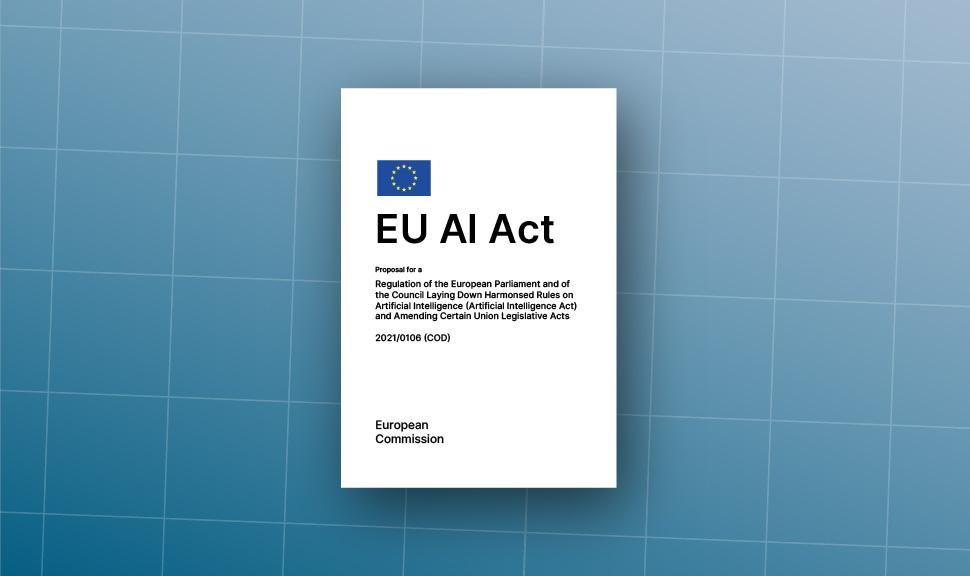In a groundbreaking move towards governing the ever-evolving realm of artificial intelligence, the European Union has introduced the first regulation of its kind – the EU AI Act. As the world grapples with the implications of AI on society, economy, and beyond, this legislation marks a significant step towards ensuring ethical and transparent use of this transformative technology. Let us delve into the key aspects of the EU AI Act and explore its implications for the future of artificial intelligence regulation.
Introduction: Implementing Ethical Guidelines in AI Development
The implementation of ethical guidelines in AI development is a pressing issue that is gaining widespread attention worldwide. With the recent introduction of the EU AI Act, a landmark regulation on artificial intelligence, the conversation around ensuring ethical practices in AI is more relevant than ever. This legislation marks a significant step towards regulating the development and deployment of AI technologies, with a focus on protecting the rights and well-being of individuals.
Under the EU AI Act, developers and users of AI systems are required to adhere to a set of ethical guidelines to ensure transparency, accountability, and fairness in AI applications. This includes requirements such as providing clear information on the AI system’s capabilities and limitations, ensuring robust cybersecurity measures are in place, and establishing mechanisms for redress in case of AI-related incidents. By prioritizing ethical considerations in AI development, the EU is setting a precedent for other regions to follow in promoting responsible AI innovation.
Key Provisions of the EU AI Act: A Step Towards Responsible Innovation
The EU AI Act represents a significant milestone in the realm of artificial intelligence regulation. It aims to ensure that AI systems developed and used in the EU are safe, transparent, and compliant with fundamental rights. The Act introduces a set of key provisions that will shape the way AI technologies are developed, deployed, and monitored in the region.
Some of the key provisions included in the EU AI Act are:
- Prohibition of certain practices: The Act prohibits the use of AI systems that manipulate human behavior in a harmful manner, such as social scoring and biometric identification in public spaces.
- Obligations for high-risk AI systems: Developers of high-risk AI systems will be required to conduct risk assessments, ensure data quality and traceability, and adhere to transparency and record-keeping obligations.
- Creation of a European Artificial Intelligence Board: This independent body will oversee the implementation of the Act, provide guidance to stakeholders, and facilitate cooperation among EU Member States.
Challenges and Opportunities Ahead: Ensuring Compliance and Promoting Innovation
The EU AI Act marks a significant milestone in the regulation of artificial intelligence, aiming to balance the challenges of ensuring compliance with the opportunities for promoting innovation. The Act sets out a framework for the development and deployment of AI systems in the EU, with a focus on transparency, accountability, and human oversight. These requirements present challenges for AI developers and businesses, but also provide opportunities to build trust with users and stakeholders.
Key provisions of the EU AI Act include:
- Prohibiting certain high-risk AI practices
- Ensuring transparency and accountability in AI systems
- Establishing a European Artificial Intelligence Board to oversee implementation
| Key Opportunity | Key Challenge |
|---|---|
| Building trust and fostering innovation | Complying with complex regulatory requirements |
Recommendations for Businesses and Developers: Navigating the Regulatory Landscape
When it comes to navigating the regulatory landscape of artificial intelligence, businesses and developers must be prepared to adapt to new guidelines and requirements. The EU AI Act marks the first comprehensive regulation on AI, setting out rules for trustworthy AI and addressing potential risks associated with the technology.
To ensure compliance with the EU AI Act and successfully navigate the regulatory landscape, businesses and developers should consider the following recommendations:
- Stay informed on the latest developments and updates regarding AI regulations in the EU.
- Engage with policymakers and industry stakeholders to provide input on regulatory initiatives.
- Implement robust risk assessment and monitoring processes to identify and mitigate potential risks associated with AI technology.
- Invest in AI ethics and compliance training for employees to promote responsible AI use within the organization.
Key Takeaways
As the EU AI Act comes into effect, there is no doubt that the regulation will shape the future of artificial intelligence in the European Union. With its focus on transparency, accountability, and the protection of citizens’ rights, this landmark legislation marks a significant step towards ensuring that AI is used responsibly and ethically. It is a pivotal moment in the evolution of technology, and one that will undoubtedly have far-reaching implications for society as a whole. Let us embrace this new era of regulation with optimism, as we strive towards a future where AI serves to enhance, rather than endanger, our lives.
